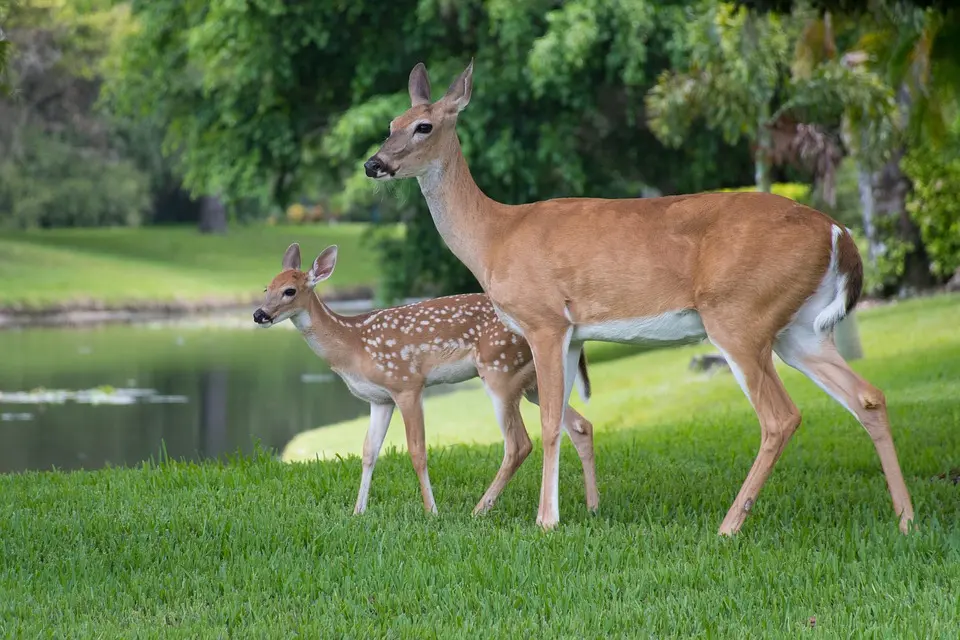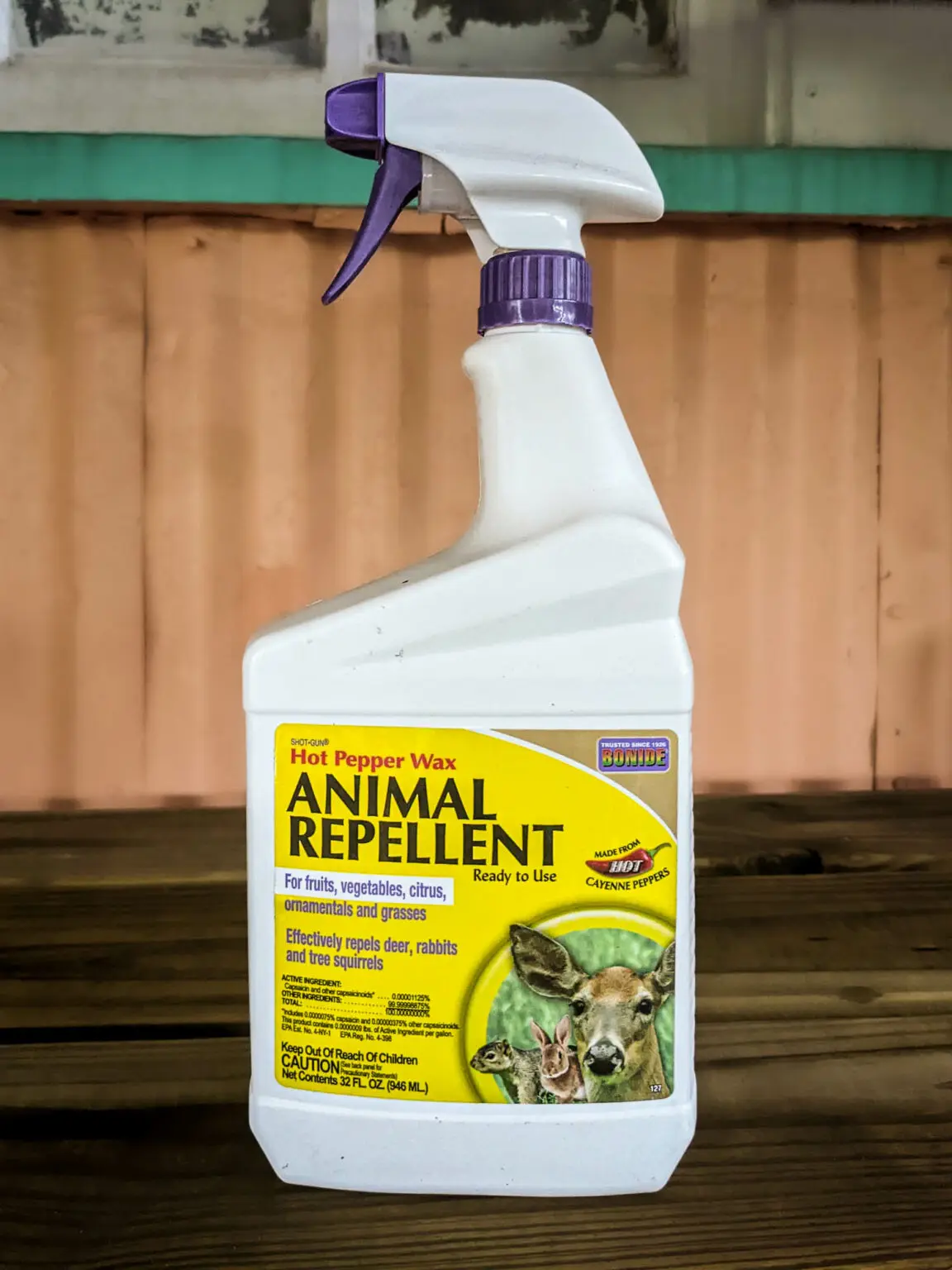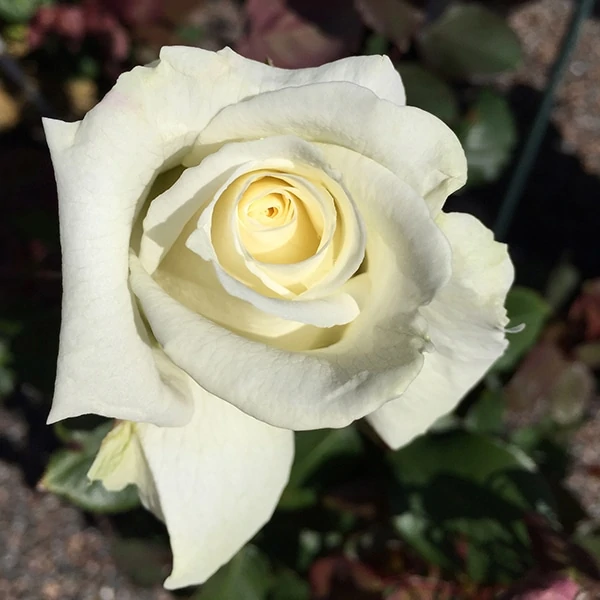by Amanda Rose Newton
Since Fall is the time to get the garden gears spinning, it is also a good time to talk about protecting your hard-earned work.

Gardening always comes with some expected risk, as Mother Nature does what she wants and our weather might not always cooperate with our best-laid plans.
Our year-round warm weather is just as enticing to other members of the animal kingdom and, like it or not, they end up reaping the benefits of our harvest.
Birds, squirrels, raccoons, and this week’s focus, deer, are just a few of the critters waiting for those tomatoes to be the perfect shade of red before making their move.
Favoring the tender new growth, deer slink into your garden undetected and leave little behind. In order to make sure you and your family make out with at least a little of your garden goodies, here is a short primer on “deer proofing” your garden this Fall.
Realistic Expectations
There is no 100% foolproof way to ensure deer, rabbits, or raccoons will not make off with some of your produce and fruit this season.
If hungry enough, all three will consume just about anything, even poisonous plants. Baby fawns are still developing taste buds and have that annoying habit of taking a bite here and there, leaving you with a garden full of partially eaten plants.
The more mature your plants are, the better off you are. Getting fruit trees to maturity is easier said than done, but here are a few tricks you can deploy in your battle royale against animal pests.
Repellents
When using a repellent it is important to know your mileage will vary with effectiveness. If nothing else, it might help keep your neighbors out of your yard, as the smell associated with some can be quite strong!
Natural repellent products include cayenne pepper that deer are not big fans of. It’s worth a try.

The internet is full of D.I.Y. repellents to try as well, just be sure to understand the chemical makeup of the suggestions and only apply safe treatments to your garden area. Remember, you are hoping to eat food produced there!
The most sound advice is taken straight from the integrated pest management playbook. Using cultural methods like crop rotation, changing up the timing of your plantings, and trap cropping are all solid ways to keep deer guessing and work just as well on them as it does on bugs.
What Deer Like
One of the best ways to get rid of munching animals (this goes for rabbits, too) is to avoid planting their favorites. As a general rule, deer love the following:
-Moist plants
-Large flowering plants
-Roses, pansies, petunias, agapanthus, and rhaphiolepis

What Deer Do NOT like
The below list includes suggestions on plants that deer do NOT love.

Consider lining your garden with a few of the following to create a deer-proof barrier. Happy Planting!
Ornamentals:
African Daisy (Osteosperum spp.)
Aster (Asteraceae, spp.)
Baby’s Breath (Gysophila spp.)
Bacopa (Bacopa monnieri)
Bee Balm (Mondaria didyma)
Black-eyed Susan vine (Thunbergia alata)
Dianthus (Dianthus spp.)
Dusty Miller (Jacobaea maritima)
Gaillaridia (Gaillardia spp.)
Geranium (Pelargonium spp.)
Goldenrod (Solidago spp.)
Milkweed (Asclepia spp.)
Portulaca (Portulaca spp.)
Shasta Daisy (Leucanthemum x superbum)
Sunflower (Helianthus spp.)
Viola (Viola spp.)
Vinca (Vinca spp.)
Shrubs and Trees
Bamboo (Bambusoideae spp.)
Boxwood (Buxus spp.)
Cherry Laurel (Prunus laurocerasus)
Magnolia (Magnolia spp.)
Holly (Ilex spp.)
Tibouchina (Tibouchina spp.)
Sycamore (Platanus occidentalis)
Olive (Olea europaea)


